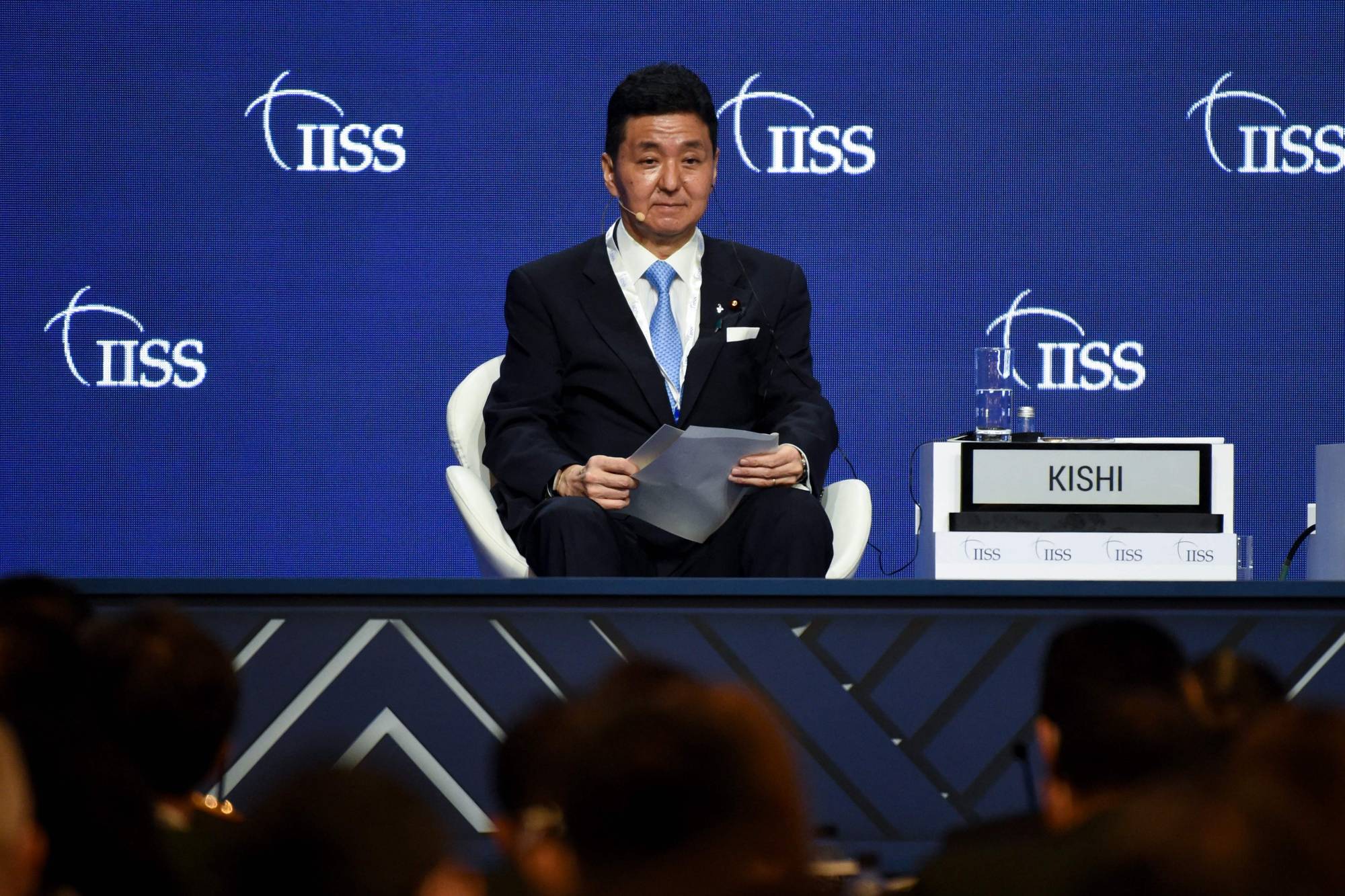Defense Minister Nobuo Kishi used an unusually tough speech Saturday at a key regional security forum to push for more cooperation in combating unilateral attempts by “rule-flouting" countries seeking to change the status quo via the threat of nuclear weapons.
Japan is on the “front lines” of a battle with such states, Kishi said, including nuclear-armed Russia, China and North Korea, which all neighbor his country.
“Japan is surrounded by actors that both possess or are developing nuclear weapons and are ignoring the rules, but also, year by year, they are becoming more open in their disregard for them,” Kishi said in a speech in Singapore at the Shangri-La Dialogue security summit.



















With your current subscription plan you can comment on stories. However, before writing your first comment, please create a display name in the Profile section of your subscriber account page.